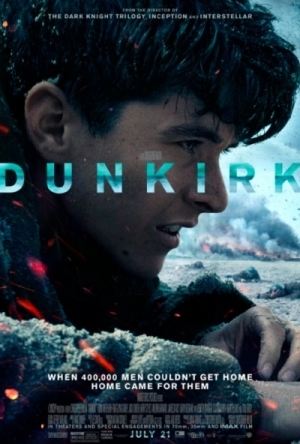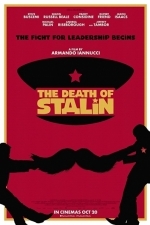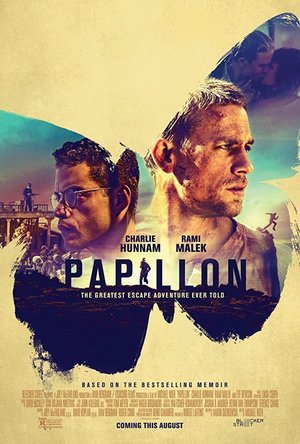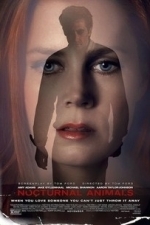
Lonely Planet Discover Caribbean Islands
Lonely Planet, Paul Clammer, Ryan Ver Berkmoes and Jean-Bernard Carillet
Book
Lonely Planet: The world's leading travel guide publisher Lonely Planet Discover Caribbean Islands...
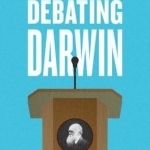
Debating Darwin
Robert J. Richards and Michael Ruse
Book
Charles Darwin is easily the most famous scientist of the modern age, and his theory of evolution is...
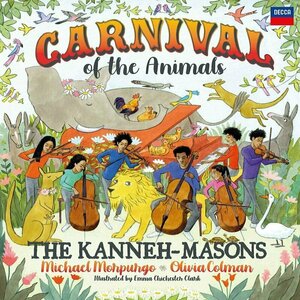
Carnival by Kanneh-Masons
Album
Decca Classics announces the release of Carnival, a very special collaboration between Academy...
Movie Metropolis (309 KP) rated Dunkirk (2017) in Movies
Jun 10, 2019
With war, you have to respect the past whilst allowing modern-day film-goers to truly understand the brutality that ordinary people like you and I went through on a daily basis.
In May 1940, Germany had advanced into France, trapping Allied troops on the beaches of Dunkirk. Under air and ground cover from British and French forces, troops were slowly and methodically evacuated from the beach using not only military ships but civilian boats too. At the end of this incredible story of courage, 330,000 French, British, Belgian and Dutch soldiers were safely evacuated.
I found a quote the other day that said “Christopher Nolan is like Michael Bay for people who have ever read a book” and in Dunkirk that seems more apt than ever. Of course there are explosions, many of them, but they are interweaved with some incredible storytelling.
Split into three separate timelines, Dunkirk follows fisherman Mark Rylance as he sails to the beaches as part of the civilian rescue effort. On land we shadow a group of young soldiers desperately trying to get back home. Finally, the film flies alongside Tom Hardy’s brave Spitfire pilot as he tries his best to keep the beaches safe.
Each of the stories has something to offer but Mark Rylance’s performance is definitely the best, making his timeline the most interesting and often the most emotional. Addressing the elephant in the room, Harry Styles, is probably best at this part of the review – he’s excellent and in a much larger part than I had imagined.
In fact, all the performances are excellent, helped in part by Christopher Nolan’s incredible use of close-ups. This is a living, breathing war and as the audience, you feel as claustrophobic as the 400,000 men did waiting on that beach in 1940.
Moreover, the sound is just astonishing. I have never known a film use sound to such an extent to convey sheer terror. The score by Hans Zimmer, coupled with the deafening aircraft flying overhead and the rapid gunfire is incredibly harrowing and makes Dunkirk very hard to watch at times – despite its 12A certification.
Dunkirk is also a masterclass in practical effects. Nearly everything you see on screen was shot without the use of CGI and my goodness you can tell. We’re so used to seeing blockbusters filled to the brim with computer generated imagery that it’s easy to forget just how good practical effects can be.
Overall, Christopher Nolan has created a tasteful homage to a day that has been etched into the minds of generations of people. It would’ve been easy to create a film that focused on the action rather than the human details of this incredible story, but Nolan has managed to craft an absolute triumph. It’s one of the best films of the year and an absolute must-watch.
https://moviemetropolis.net/2017/07/23/dunkirk-review-a-triumph/
Bob Mann (459 KP) rated The Death Of Stalin (2017) in Movies
Sep 29, 2021
Rupert Friend (centre) tries to deliver a eulogy to his father against winged opposition. With (from left to right) Michael Palin, Jeffrey Tambor, Steve Buscemi and Simon Russell Beale.
It should come as no surprise then that his new film – “The Death of Stalin” – follows that same pattern, but transposed into the anarchic and violent world of 1950’s Russia. Based on a French comic strip, the film tells the farcical goings on surrounding the last days of the great dictator in 1953. Stalin keeps distributing his “lists” of undesirables, most of who will meet unpleasant ends before the end of the night. But as Stalin suddenly shuffles off his mortal coil, the race is on among his fellow commissariat members as to who will ultimately succeed him.
Stalin…. Going… but not forgotten.
The constitution dictates that Georgy Malenkov (an excellently vacillating Jeffrey Tambor) secedes but, as a weak man, the job is clearly soon going to become vacant again and spy-chief Lavrentiy Beria (Simon Russell Beale) and Nikita Khrushchev (Steve Buscemi) are jostling for position. (No spoilers, but you’ll never guess who wins!). Colleagues including Molotov (Michael Palin) and Mikoyan (Paul Whitehouse) need to decide who to side with as the machinations around Stalin’s funeral become more and more desperate.
The film starts extremely strongly with the ever-excellent Paddy Considine (“Pride”) playing a Radio Russia producer tasked with recording a classical concert, featuring piano virtuoso Maria Yudina (Olga Kurylenko, “Quantum of Solace”). A definition of paranoia in action!
Great fingering. Olga Kurylenko as Yudina, with more than a hand in the way the evening’s events will unfold.
We then descend into the chaos of Stalin’s Russia, with mass torture and execution colouring the comedy from dark-grey to charcoal-black in turns. There is definitely comedy gold in there: Khrushchev’s translation of his drunken scribblings from the night before (of things that Stalin found funny and – more importantly – things he didn’t) being a high point for me. Stalin’s children Svetlana (Andrea Riseborough, “Nocturnal Animals”) and Vasily (Rupert Friend, “Homeland”) add knockabout humour to offset the darker elements, and army chief Georgy Zhukov (Jason Isaacs, “Harry Potter”) is a riot with a no-nonsense North-of-England accent.
Brass Eye: Jason Isaacs as the army chief from somewhere just north of Wigan.
Production values are universally excellent, with great locations, great sets and a screen populated with enough extras to make the crowd scenes all appear realistic.
Another broad Yorkshire accent: (the almost unknown) Adrian McLoughlin delivers an hysterical speaking voice as Stalin.
The film absolutely held my interest and was thorougly entertaining, but the comedy is just so dark in places it leaves you on edge throughout. The writing is also patchy at times, with some of the lines falling to the ground as heavily as the dispatched Gulag residents.
It’s not going to be for everyone, with significant violence and gruesome scenes, but go along with the black comic theme and this is a film that delivers rewards.
Gareth von Kallenbach (965 KP) rated Papillon (2018) in Movies
Jul 2, 2019
Papillon is based on a true story and adapted from the novels “Papillon” and “Banco” written by Charriere himself. This is the second film adaptation of these novels. The other film, also Papillon, is from 1973 stared Steve McQueen and Dustin Hoffman. I have not seen the 1973 version but I did enjoy the story and could be worth viewing to get another directors vision.
The 2018 version is powered but a captivating story of survival and the unlikely friendship of two men thrust together in a harsh environment. Both Hunnam (King Arthur, Pacific Rim) and Malek (Mr. Robot – TV Series, Night at the Museum) give excellent performances. The rest of the cast is okay but these two stars give great performances. Danish director Michael Noer (R, Northwest) does a decent job in the telling of the story visually. There was blood in one scene that was a pink colored and did not look anything like blood and that was a little distracting. The prison seemed realistic and grimy, but also weirdly bright.
Overall I enjoyed this film. I didn’t have any expectations going in and was pleasantly surprised but interesting story. At 2 hours and 13 minutes it does seem a bit too long. This would be a film I would enjoy watching at home and not necessarily something I would spend theater money on.
Domus 1980s
Book
Postmodern & High-Tech The 1980s in full force Founded in 1928 as a ""iving diary" by the great...

CaloryGuard Pro - Track calories, lose weight
Health & Fitness
App
Easily and permanently lose weight and get your dream body with CaloryGuard Pro - Your personal...

Dukan Diet Pro - Recipes to Lose Weight
Food & Drink and Health & Fitness
App
New year, new you! Dukan Diet Pro provides hundreds of dukan food recipes to help you lose weight...
Bob Mann (459 KP) rated Nocturnal Animals (2016) in Movies
Sep 29, 2021
In the midst of this rudderless time a manuscript from her ex-husband, struggling writer Edward Sheffield (Jake Gyllenhaal), turns up out of the blue. As we see in flashback, Edward is a man let down on multiple levels by Susan in the past. His novel – “Nocturnal Animals”, dedicated to Susan – is a primal scream of twenty years worth of hurt, pain, regret and vengeance; a railing against a loss of love; a railing against a loss of life.
As Susan painfully turns the pages we live the book as a ‘film within a film’ – with characters casually modelled on Edward, Susan and Susan’s daughter, actually played by Gyllenhaal, Amy-Adams-lookalike Isla Fisher (“Grimsby”) and Ellie Bamber (“Pride and Prejudice and Zombies”) respectively. The insomniac Susan is seriously moved. She feels likes someone who’s fallen asleep on the train of life and doesn’t recognise any of the stations when she wakes up. How will Susan’s regrets translate into action? Should she take up Edwards offer to meet up for dinner?
This Tom Ford film – only his second after the wildly successful “A Single Man” in 2009 – is a challenging film to watch. The opening titles of naked overweight woman ‘twerkers’ is challenging enough (#wobble). After this shocking opening (that morphs into an art gallery installation) the LA scenes have a gloriously Hitchcockian/noir feel to them, being gorgeously filmed by cinematographer Seamus McGarvey (“The Accountant”, “The Avengers”) – an Oscar nomination I would suggest should be in the offing.
And then comes the start of the “book” segment: one of the most uncomfortably tense scenes I’ve seen this year. A Texan family horror film featuring a lonely highway and a trio of “deplorables” (to quote an unfortunate put-down by Hilary Clinton). As stark contrast to the sharp lines and glamour of LA, these scenes are reminiscent of “No Country for Old Men” with a searingly unpleasant performance from Aaron Taylor-Johnson (“Kick-Ass”) and an equally queasy turn by local law enforcer Bobby Andes (Michael Shannon, Zod in “Batman v Superman: Dawn of Justice”). Either or both of these gentlemen could be contenders for a Supporting Actor nomination. The tension is superbly notched up by a mesmerising cello/violin score by Polish composer Abel Korzeniowski.
Amy Adams is fantastic in the leading role (what with “Arrival” this month, this is quite a month for the actress) as is Jake Gyllenhaal, channelling so much emotion, angst and guilt at his own impotence. After “Nightcrawler” Gyllenhaal is building up a formidable reputation that must translate into an Oscar some time soon: possibly this is it. Some excellent cameos from Laura Linney (as Susan’s sad-eyed mother) and Michael Sheen (in a superb purple jacket) rounds off an excellent ensemble cast.
The concept of a “film within a film” is not new. The most memorable example (I realise with a shock – #midlifecrisis) was “The French Lieutenant’s Woman” with a young but striking Meryl Streep 35 years ago. Here the LA sequence, the book and the flashback scenes are beautifully merged into a seamless whole where you never seem to get lost or disorientated.
If there is a criticism to be made, the second half of the ‘book’ is not as satisfying as the first with some rather clunky plot points that fall a little too easily.
However, this is a nuanced film where every step and every scene feels sculpted and filled with meaning. It is a film that deserves repeat viewings, since it raises questions and thoughts that survive long after the lights have come up. Tom Ford’s output may be of a sparsity of Kubrick proportions, but like Kubrick his output is certainly worth waiting for.
Recommended, but go mentally prepared: this was a UK 15 certificate, but it felt like it should be more of a UK 18.
